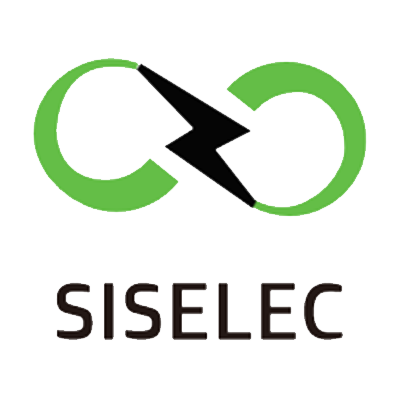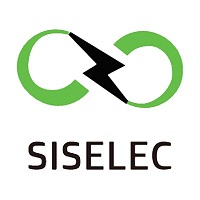- A Brighter Tomorrow Starts Here: Your Daily Dose of Global News & Actionable Insights.
- Global Economic Shifts and Their Impact
- Advancements in Renewable Energy Technologies
- The Role of Government Incentives
- Geopolitical Tensions and International Relations
- Breakthroughs in Medical Research
- The Potential of Artificial Intelligence in Healthcare
- The Impact of Social Media on Public Discourse
A Brighter Tomorrow Starts Here: Your Daily Dose of Global News & Actionable Insights.
In today’s rapidly evolving world, staying informed is more crucial than ever. The constant flow of information, often delivered instantaneously, shapes our understanding of global events, influences our decisions, and ultimately, impacts our lives. Access to reliable, unbiased, and comprehensive updates is not merely a convenience but a necessity for responsible citizenship and proactive engagement with the world around us. This continuous cycle of information – the modern equivalent of ‘news’ – empowers individuals to navigate complexities and contribute to positive change.
But the sheer volume of available information can be overwhelming. Sifting through countless sources to discern fact from fiction and gaining a nuanced perspective requires time, critical thinking skills, and a commitment to seeking diverse viewpoints. This article delves into the landscape of current events, offering digestible insights and a call to action for those eager to be informed and empowered.
Global Economic Shifts and Their Impact
The global economy continues to exhibit signs of fluctuating growth, with several key factors contributing to uncertainty. Rising inflation rates in major economies, coupled with disruptions in supply chains, have impacted consumer spending and business investment. Central banks are responding with interest rate hikes, aiming to curb inflation but potentially slowing down economic expansion. Monitoring these shifts is vital for understanding long-term financial stability.
The impact of these shifts isn’t uniform across the globe. Emerging economies are particularly vulnerable to rising interest rates and capital flight. Developed nations, meanwhile, grapple with the domestic consequences of inflation and the potential for recession. A deeper analysis of these regional variations reveals a complex interconnectedness that demands international cooperation.
| United States | 4.9% | 2.1% |
| Eurozone | 7.3% | 0.5% |
| China | 2.8% | 5.2% |
| India | 6.7% | 7.2% |
Advancements in Renewable Energy Technologies
The push towards sustainable energy solutions is gaining momentum, driven by growing environmental concerns and the falling cost of renewable technologies. Solar, wind, and hydropower continue to be the dominant sources of renewable energy, but emerging technologies like geothermal and wave energy are also showing promising potential. Investment in research and development is crucial for unlocking further innovations in this field.
However, the transition to renewable energy isn’t without challenges. Intermittency – the variability of solar and wind power – remains a significant hurdle. Developing efficient energy storage solutions, such as advanced batteries and pumped hydro storage, is critical for ensuring a reliable and stable energy supply. Policy interventions and infrastructure upgrades are also essential for accelerating the adoption of renewable energy.
The Role of Government Incentives
Government incentives play a pivotal role in driving the adoption of renewable energy technologies. Tax credits, subsidies, and feed-in tariffs can significantly reduce the cost of renewable energy projects and make them more attractive to investors. These incentives also create jobs and stimulate economic growth in the renewable energy sector. Countries that have implemented aggressive renewable energy policies have seen substantial increases in renewable energy capacity and reductions in carbon emissions.
Standardizing regulations and improving grid infrastructure are are also impactful. Streamlined permitting processes can reduce the time and cost associated with developing renewable energy projects. Investments in grid infrastructure are necessary to accommodate the increased flow of electricity from renewable sources and ensure a reliable and resilient energy system. Smart grid technologies, which improve grid efficiency and flexibility, are quickly becoming essential for integrating variable renewable energy sources.
Geopolitical Tensions and International Relations
Increased geopolitical tensions are reshaping the global political landscape, leading to heightened instability and uncertainty. Conflicts in various regions, coupled with rising nationalism and protectionism, are posing challenges to international cooperation and multilateralism. Effective diplomacy and conflict resolution mechanisms are essential for de-escalating tensions and preventing further escalation.
The ramifications of this shifting landscape are far-reaching. Trade wars, sanctions, and military build-ups are disrupting global supply chains, impacting economic growth, and increasing the risk of conflict. Strengthening international institutions and promoting dialogue are essential for addressing these challenges and fostering a more peaceful and cooperative world order.
- Increased military spending across key nations
- Rising nationalism and protectionist policies
- Disruptions to global supply chains
- Heightened cybersecurity threats
- Increased competition for natural resources
Breakthroughs in Medical Research
The field of medical research is witnessing remarkable breakthroughs, offering hope for the treatment and prevention of diseases that were once considered incurable. Advances in genomics, immunotherapy, and gene editing are revolutionizing healthcare and transforming the way diseases are diagnosed and treated. Continued investment in research and development is crucial for accelerating these advances and improving patient outcomes.
However, these advancements also raise ethical concerns. Gene editing, for example, holds tremendous potential for treating genetic diseases but also raises questions about the responsible use of this technology. Ensuring equitable access to new treatments and therapies is also a crucial challenge. Robust regulatory frameworks and ethical guidelines are essential for navigating these complex issues and harnessing the full potential of medical research.
The Potential of Artificial Intelligence in Healthcare
Artificial intelligence (AI) is rapidly transforming the healthcare landscape, offering the potential to improve diagnostics, personalize treatment plans, and accelerate drug discovery. AI-powered algorithms can analyze vast amounts of medical data to identify patterns and predict outcomes, helping doctors make more informed decisions. AI is also being used to develop robotic surgery systems, improve medical imaging, and enhance patient monitoring. Addressing data privacy is especially important with AI.
Despite its promise, the implementation of AI in healthcare faces several challenges. Data bias, lack of transparency, and concerns about job displacement are among the key issues that need to be addressed. Developing robust ethical guidelines and regulatory frameworks is essential for ensure that AI is used in a responsible and equitable manner. Training healthcare professionals on how to effectively use AI tools is also crucial for maximizing its benefits.
The Impact of Social Media on Public Discourse
Social media platforms have become an integral part of modern public discourse, providing a space for individuals to share their opinions, connect with others, and engage in political debate. However, social media also poses challenges, including the spread of misinformation, the amplification of extremist views, and the erosion of trust in traditional media. Promoting media literacy and responsible social media use are essential for mitigating these risks.
The algorithms that govern social media platforms play a significant role in shaping the information that users see. These algorithms often prioritize engagement over accuracy, leading to the spread of sensationalized content and echo chambers. Increasing transparency in algorithmic decision-making and promoting diverse perspectives are crucial for fostering a more informed and inclusive public discourse.
- The spread of misinformation
- The amplification of extremist views
- The erosion of trust in traditional media
- The formation of echo chambers
- The polarization of public opinion
Navigating the current global landscape requires a commitment to continuous learning, critical thinking, and informed engagement. By staying abreast of economic shifts, technological advancements, geopolitical tensions, medical breakthroughs, and the evolving dynamics of public discourse, individuals can empower themselves to be effective agents of change and contribute to a brighter future.
The accessibility of information – the continuous stream of updates we now recognize – fundamentally affects our ability to respond to challenges and capitalize on opportunities. A well-informed public is the cornerstone of a thriving democracy, and prioritizing access to reliable information is an investment in a more just and sustainable world.



